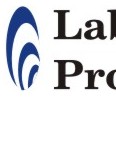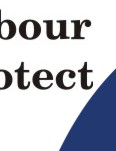 |
 |
 |
 |
 |
|
 |
 |
 |
 |
 |
|
 |
 |
 |
 |
 |
|
 |
 |
 |
 |
 |
|
 |
 |
 |
 |
 |
DRUNKENNESS ON DUTYIntroductionDrunkenness on duty and partaking of alcohol on duty (whether or not the employee is intoxicated) may constitute misconduct. Misconduct is one of the grounds recognised by the law that may give reason for the dismissal of an employee if preceded with a fair procedure. Intoxication involves an impairment of one’s abilities, a visible effect upon one’s behaviour beyond the limits of sobriety, not merely the smell of alcohol on one’s breath. Dismissal for drunkenness on dutyThe facts of the case and the appropriateness of dismissal as a penalty determine whether or not a dismissal is for a fair reason. It is recommended that the employer develop a policy that deals with intoxication or drinking on duty. Before an employee is dismissed for drunkenness on duty, the employer has to take into account the disciplinary code. First and even second offences of such misconduct may not be too serious except where the employee commits gross misconduct which makes the continued employment relationship intolerable, for example the employee was too intoxicated to work or where the employee in such state endangered other employees. Testing the degrees of drunkennessThese matters should be treated as any other form/type of misconduct. There may be substantive and procedural fairness in dealing with such matters. It is generally acceptable that employers test the blood-alcohol level to ascertain the degree of drunkenness of an employee. The employer should also consider length of service and the employee’s service record before deciding to dismiss the employee for drinking. The employer should not rely on ‘blood-alcohol’ content. It is also necessary to distinguish between whether the employee is able/unable to perform his/her tasks and the nature of such tasks. The nature and responsibility of the employee’s job has to be taken into account as well as the dangers and risk of the employee’s working environment. The degree to which the employer encourages misuse of alcohol is an important factor in determining appropriate penalty for alcohol abuse and rehabilitation must always be considered. The offence is not of consumption of alcohol or having consumed alcohol before coming on duty, it is one of drunkenness. Even if the employee’s blood/alcohol content is above the legal limit of 0.08 %, he may be able to do his work. The breathalyser is not completely accurate. It only establishes whether a person has consumed alcohol. It does not determine whether the person can carry out his duties or not. A person who is trained in its use, who understands how it operates and in the presence of the shop steward or worker representative of the person who is undergoing the test, should conduct the test. Misconduct and incapacityThe employer should distinguish between misconduct and incapacity. Misconduct relates to blameworthy intoxication at work and should always be looked upon as a disciplinary matter, while incapacity concerns the employee’s inability to do the work which is due to ill-health and not the fault of the employee. The misconduct of the employee must be work related. The sanction that results from breach of the rule must be clear and fair. The rule must be applied consistently, for example managers and general workers. Alcoholism, which is a form of incapacity, must be dealt with as such (see information sheet – Incapacity). Procedural FairnessThe employer should make the employees aware of the rules regarding drunkenness. The standard may be the same for all workers or it could vary according the degree of complexity, danger or responsibility, for example pilots might not be allowed alcohol at all while other workers might be allowed to but not in excess of 0.08%. The employer is required to follow a fair procedure when dismissing an employee. After all the above requirements have been met the following should be applied — u The employee should be issued a notice for the disciplinary hearing with reasonable time to prepare. The notice should clearly state the charges against the employee; the time and venue of the hearing; rights of the employee in the hearing, like the right to a representative. The union should be consulted before the hearing, if the employee is a member. u At a hearing the employee should be given an opportunity to state his/her case. A shop steward or a union official can represent the employee. After the hearing the employer should inform the employee of the decision. If the employee is not satisfied with the outcome of the hearing, the employer should also inform the employee of his/her rights to appeal or the remedies in terms of the LRA. u The chairperson at the hearing cannot also chair the appeal hearing, if conducted. JurisdictionIssues related to unfair dismissal for drunkenness on duty may be referred to a bargaining council or to CCMA within 30 days of date of dismissal. Relevant Legislation Labour Relations Act, s188(2), Schedule 8 This document is based on information available from the CCMA >> Labour Law >> useful links >> advice >> code of good practice: conduct and capacity >> harassment >> conciliation |
|
|National Assistance: 0860 LABOUR/ 0860 522687
|
||||
| To join... | ||||
| (the Membership Fee is only R85pm): | ||||
|
||||